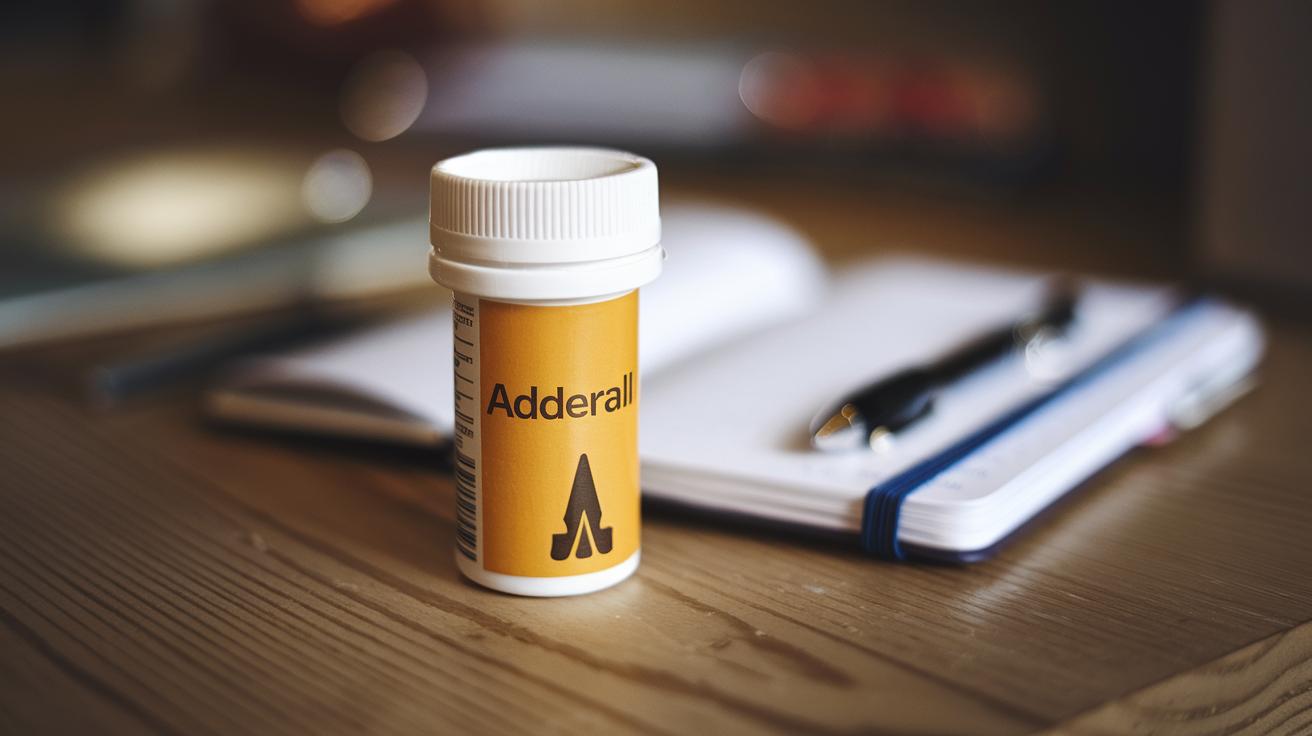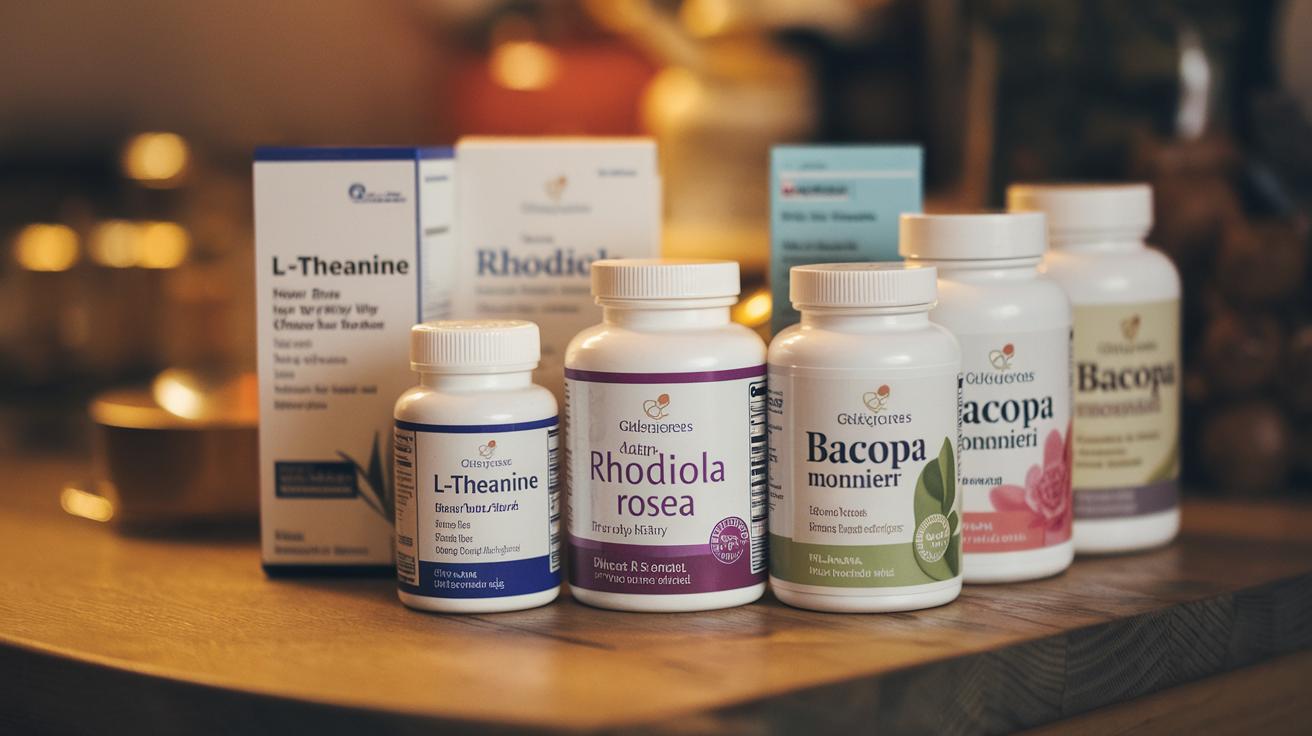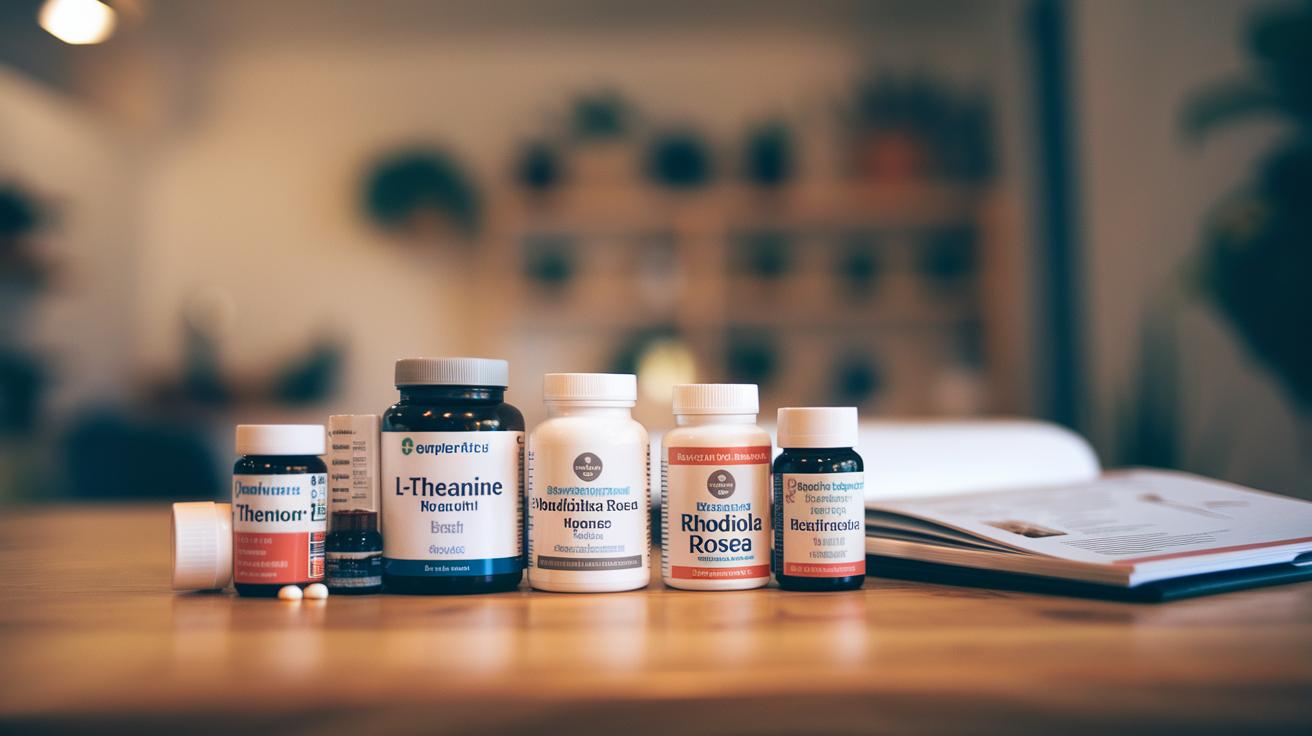Can nature offer a safe and effective alternative to pharmaceuticals like Adderall for boosting focus and managing ADHD symptoms? As more individuals seek options without the associated side effects of prescription medications, the interest in organic substitutes has surged. The exploration of natural compounds such as L-theanine, Rhodiola Rosea, and Bacopa Monnieri brings new possibilities for enhancing cognitive performance. This article delves into these natural alternatives, evaluating their potential benefits and comparing them to traditional medications, to determine if they can effectively replace Adderall in the pursuit of better mental clarity and focus.
Understanding Adderall and Its Uses

Adderall is a prescription medication primarily used to treat attention deficit hyperactivity disorder (ADHD) and narcolepsy. It is composed of amphetamine and dextroamphetamine, which are central nervous system stimulants. These compounds work by altering the levels of certain natural substances in the brain, which helps increase attention and decrease impulsiveness and hyperactivity in patients diagnosed with ADHD. For individuals with narcolepsy, Adderall aids in maintaining wakefulness and alertness, counteracting excessive daytime sleepiness.
The benefits of Adderall in managing ADHD symptoms are well-documented. Patients often experience improved focus, better organizational skills, and increased attention span. This enhanced cognitive function allows individuals to perform tasks more efficiently, contributing to better academic, professional, and social outcomes. Additionally, Adderall's ability to boost energy levels is beneficial for those struggling with fatigue, especially in the context of narcolepsy, where it helps maintain a normal level of alertness throughout the day.
- Insomnia
- Increased heart rate
- Anxiety
- Dry mouth
- Potential dependency
Despite its benefits, Adderall is associated with several side effects that necessitate the consideration of alternatives. The risk of developing dependency is a significant concern, as long-term use can lead to tolerance and withdrawal symptoms. Additionally, side effects such as insomnia and increased heart rate can be particularly concerning, especially for individuals with pre-existing cardiovascular conditions. These factors drive the interest in finding safer, natural alternatives that can offer cognitive benefits without the adverse effects commonly associated with stimulant medications.
What Are Natural Alternatives to Adderall?

The growing interest in natural alternatives to Adderall is fueled by concerns over the side effects and dependency risks associated with prescription stimulants. Individuals seek options that provide cognitive enhancements while minimizing adverse effects. Organic substitutes for Adderall, such as L-theanine, Rhodiola Rosea, and Bacopa Monnieri, are gaining popularity for their ability to improve focus, reduce anxiety, and enhance memory without the pharmacological drawbacks.
L-theanine, found in green tea, is recognized for its calming effects that promote relaxation without causing sedation. It increases the production of neurotransmitters like serotonin and dopamine, which can improve mood and cognitive performance. When combined with caffeine, L-theanine enhances alertness and focus, making it a favored choice for those looking to maintain concentration and reduce stress levels.
Rhodiola Rosea, an adaptogenic herb, is known for its ability to combat fatigue and support mental clarity. It enhances the body's resilience to stress by modulating the release of stress hormones. This can lead to improved attention span and reduced mental fatigue, which are beneficial effects for individuals experiencing cognitive overload or burnout. Rhodiola is particularly valued for its energizing properties without causing jitteriness.
Bacopa Monnieri, a traditional Ayurvedic herb, is esteemed for its memory-enhancing capabilities. It supports cognitive function by promoting the growth of nerve cells and increasing blood flow to the brain. Regular use of Bacopa Monnieri has been shown to improve memory retention, information processing, and learning capacity. These attributes make it a promising natural alternative for those seeking cognitive enhancement.
| Alternative | Primary Benefit |
|---|---|
| L-theanine | Promotes relaxation and enhances focus |
| Rhodiola Rosea | Reduces fatigue and improves mental clarity |
| Bacopa Monnieri | Enhances memory and cognitive function |
Comparing the Effectiveness of Natural Alternatives to Adderall

Scientific studies indicate that while natural alternatives to Adderall may not achieve the same level of potency, they provide cognitive enhancements with fewer associated risks. Adderall, known for its efficacy in improving focus and attention, operates through stimulant properties that can lead to various side effects. In contrast, natural supplements like L-theanine and Rhodiola Rosea offer milder effects conducive to cognitive function improvement. L-theanine, found in tea leaves, facilitates relaxation without causing drowsiness, making it a viable option for stress reduction and concentration enhancement. Similarly, Rhodiola Rosea, an adaptogen, aids in managing stress and mental fatigue, thereby supporting cognitive clarity and resilience.
The use of natural supplements presents both advantages and drawbacks. On the positive side, these alternatives are generally associated with fewer side effects compared to stimulant medications, reducing the risk of dependency or cardiovascular complications. However, the cognitive benefits they offer might be less pronounced than those of Adderall, particularly in individuals with severe attention deficits. Users may find that natural supplements require a longer duration to exhibit noticeable effects, and their efficacy can vary significantly among individuals. Despite these variations, the lower risk profile of natural supplements makes them appealing for those seeking safer long-term options.
- Natural supplements typically have fewer side effects than Adderall.
- The potency of cognitive enhancement is generally milder with natural alternatives.
- They present a lower risk of dependency compared to stimulant medications.
- Natural alternatives may take longer to show effectiveness.
Legal and Availability Considerations for Organic Adderall Alternatives

Natural Adderall alternatives, such as L-theanine and Rhodiola Rosea, are generally accessible as over-the-counter supplements in numerous countries, circumventing the need for a prescription. Despite their widespread availability, users must confirm the legality of these supplements within their specific region, as regulations can vary. It is crucial to consult healthcare providers before incorporating these alternatives into one's regimen, to ensure safe and suitable usage, especially in individuals with pre-existing health conditions or those currently on medication.
Purchasing these supplements is relatively straightforward, with options ranging from online platforms to physical health stores. Online marketplaces, health food stores, and pharmacies typically stock a variety of these organic products, offering consumers convenience and choice.
- Online marketplaces (e.g., Amazon, eBay)
- Health food stores
- Pharmacies
By consulting healthcare professionals and verifying regional legality, individuals can make informed decisions regarding the use of natural Adderall alternatives, ensuring both compliance with local regulations and personal safety.
Expert Opinions on Natural Alternatives to Adderall

Experts in the field of ADHD management acknowledge the growing interest in natural alternatives to Adderall, noting that while these options are promising, they are not a substitute for professional diagnosis and treatment. Physicians and researchers highlight that natural supplements like L-theanine, Rhodiola Rosea, and Bacopa Monnieri can offer mild cognitive benefits, yet they caution against their use as primary treatment methods. The consensus among experts is that these supplements may support cognitive enhancement and stress reduction, but their efficacy and safety must be evaluated on an individual basis.
Ongoing research endeavors are crucial in understanding the role of natural supplements in cognitive health. Recent studies investigate the mechanisms through which these supplements exert their effects, with a focus on neurotransmitter modulation and stress response. Research findings suggest that L-theanine promotes relaxation by increasing alpha brain wave activity, Rhodiola Rosea enhances stress resilience through hormonal regulation, and Bacopa Monnieri supports memory by increasing synaptic communication. Despite these positive insights, the scientific community stresses the need for further rigorous trials to establish definitive conclusions on their efficacy and safety profiles.
A balanced approach to ADHD management, integrating professional consultation with interest in natural alternatives, is vital. Healthcare providers emphasize the importance of individualized treatment plans that consider both pharmacological and non-pharmacological options. Patients are advised to discuss any interest in natural supplements with their healthcare professionals to ensure safe and effective integration into their ADHD management strategies, thus avoiding potential interactions and ensuring comprehensive care.
Final Words
Exploration of Adderall's role in managing ADHD and narcolepsy highlighted its benefits, such as enhanced focus and energy. The side effects like insomnia and dependency, however, underscore the interest in discovering natural alternatives. Supplements like L-theanine, Rhodiola Rosea, and Bacopa Monnieri offer cognitive enhancements with fewer risks.
When comparing effectiveness, these options present viable safety advantages despite being less potent than Adderall.
Understanding the legal status and availability of these organic substitutes is crucial for users. Consulting healthcare professionals remains a priority.
Pursuing insights on what is an organic for Adderall? emphasizes the importance of informed choices and a balanced approach to cognitive health.
FAQ
Q: What are drugs similar to Adderall available over the counter?
A: Over-the-counter drugs similar to Adderall often include natural supplements like L-theanine, Rhodiola Rosea, and Bacopa Monnieri, known for their cognitive and mood-enhancing properties.
Q: What is the best natural Adderall alternative?
A: The best natural alternative can vary, but many find L-theanine effective for promoting relaxation and focus, while Rhodiola Rosea is popular for stress reduction and Bacopa Monnieri for memory enhancement.
Q: Are there liquid Adderall options over the counter?
A: Liquid Adderall formulations are not available over the counter; however, various liquid supplements aim to mimic some benefits, though not specifically prescribed as Adderall alternatives.
Q: What are alternatives to Adderall for adults with fatigue?
A: For adults experiencing fatigue, natural alternatives like Rhodiola Rosea and Bacopa Monnieri may offer energy-boosting and cognitive-enhancing benefits without the side effects of prescription stimulants.
Q: What is a natural alternative to Ritalin for adults?
A: Bacopa Monnieri and Rhodiola Rosea serve as popular natural alternatives to Ritalin for adults, providing cognitive and mood support with fewer side effects.
Q: Is there a natural stimulant for ADHD?
A: Natural stimulants such as L-theanine and Rhodiola Rosea are used to help ADHD symptoms, focusing on attention and reducing anxiety, though not matching prescription stimulant effects entirely.
Q: Does Wellbutrin give you energy like Adderall?
A: Wellbutrin, primarily used as an antidepressant, can increase energy and focus for some but doesn't replicate Adderall's stimulant properties or effects in treating ADHD.


